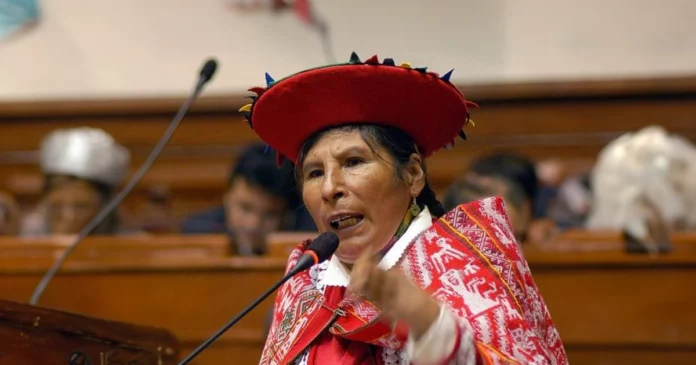
Forty years of fighting for the rights of indigenous communities
Human rights activist Hilaria Supa Huamán, director of the Peruvian health center Mosoq Pakari Sumaq Kawsay (New Dawn for a Good Life), received the prestigious Renfield Foundation Award for Global Women’s Health on March 13 from the University of Pennsylvania School of Nursing.
This recognition was given for her lifelong dedication to defending the rights and well-being of indigenous women in Peru, particularly for her tireless work against forced sterilization. Between 1996 and 2000, the government of Alberto Fujimori implemented a population control campaign in this South American country, especially in rural communities, through the Family Planning and Reproductive Health Program.
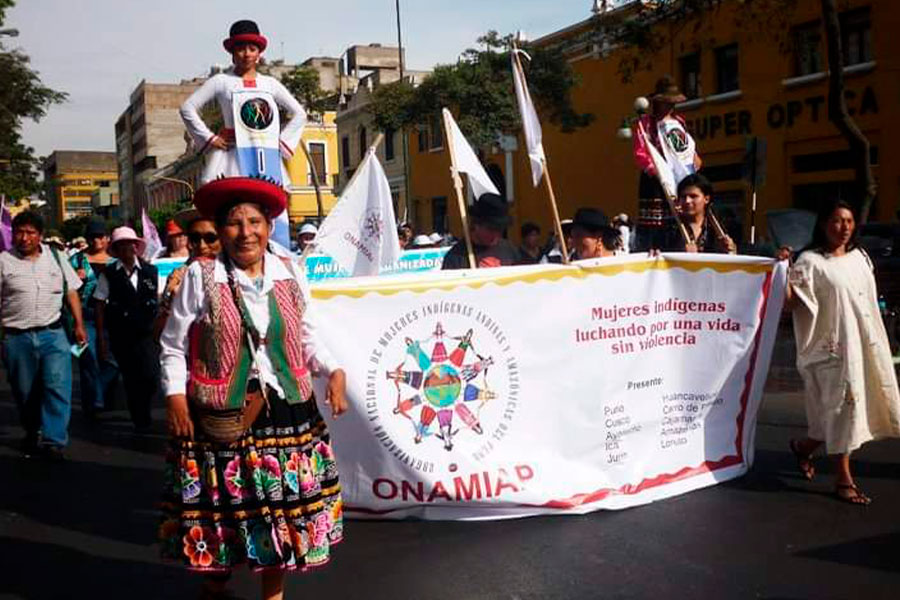
Forced sterilization is the sterilization of one or more persons without their consent or medical or clinical justification, with eugenic, punitive, or forced contraceptive intent. As a result of this practice, 314,605 women were subjected to tubal ligation, an irreversible surgical method.
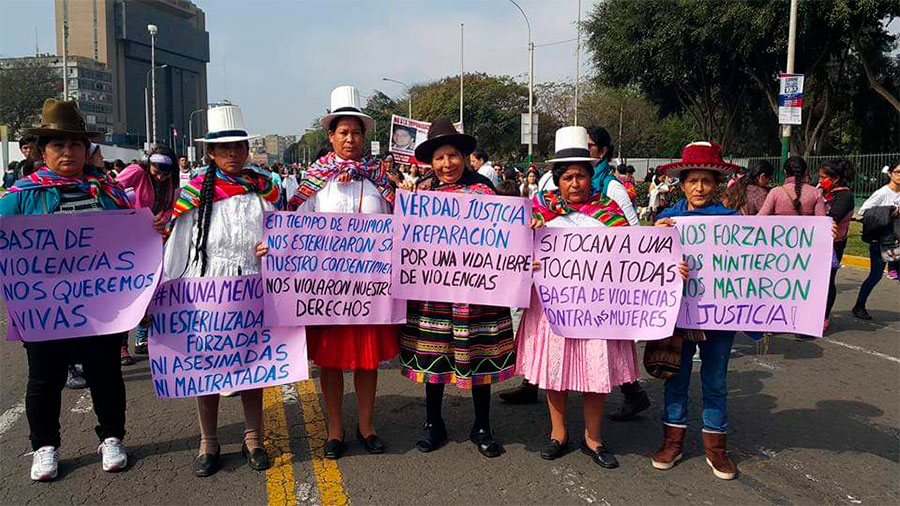
The implementation of this program was a serious human rights violation that has been widely described as ethnic cleansing or genocide against the country’s indigenous communities. Official figures indicate that more than seven thousand women, mostly peasants, indigenous, and poor, were sterilized against their will. Researchers have stated that they were manipulated, deceived, blackmailed, or forced, operated on in very precarious and undignified conditions, abandoned to their fate, and then forgotten by the State.
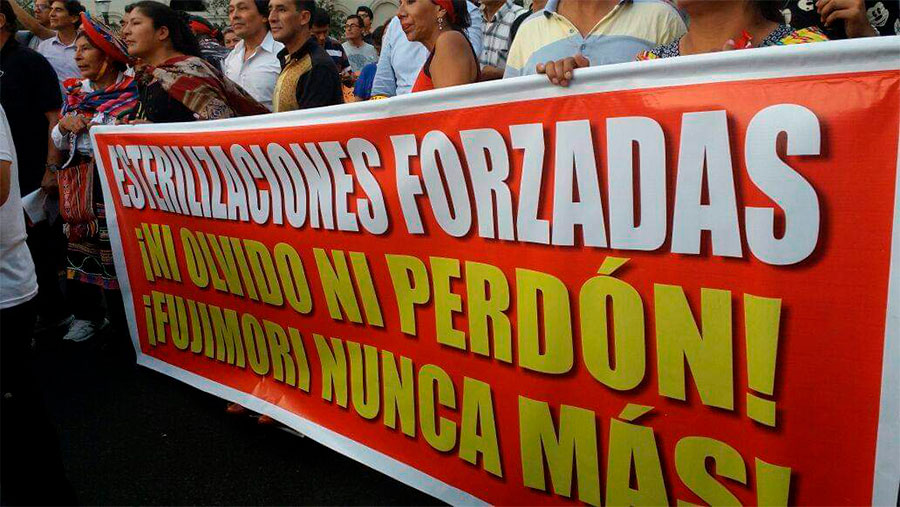
The investigation has been shelved four times by the Public Prosecutor’s Office, due to interference from the political power of Fujimorism and a macho culture that persists in Peru, which continues to consider women’s reproductive organs as a common good over which the State can decide. The State has not been able to develop a reparations program that guarantees the rights of those affected.
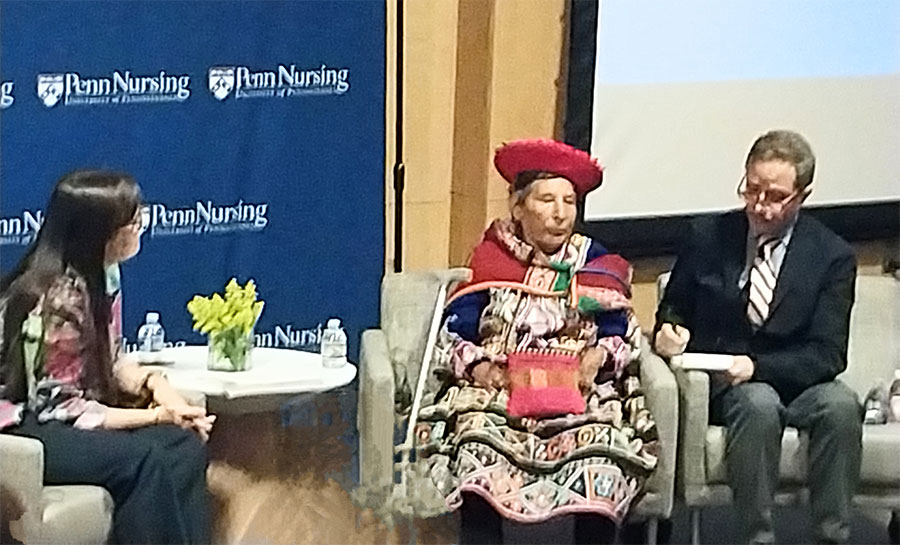
In the Andean world, fertility is a fundamental condition for women, as well as for the land. There is a close connection between both as they are sources of life. This traumatic process left physical and psychological scars on them that they still carry 24 years later. For their husbands and their community, they are «sick women» who are stigmatized and marginalized for having lost their reproductive abilities.
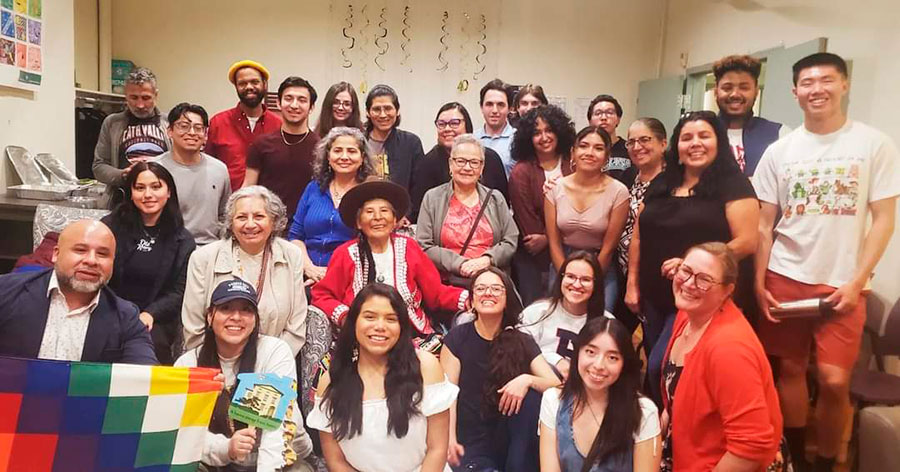
In Philadelphia
Hilaria Supa Huamán, as a leader of her community and the Federation of Peasant Women of Anta, in Cuzco, described how she felt horror when she learned about the forced sterilizations. «I was in China in 1995 when Fujimori said that women’s economy would improve when they took care of themselves.» From that moment on, she began to collect testimonies from women who had been operated on.
During the award ceremony, through the interpreter Armando Ezquerra Hasbún, the activist answered questions from the moderator and the audience. One of the testimonies of the women who trusted her is the following:
«A colleague came to tell me that she had gone to buy milk for her baby because she was breastfeeding. She meets the nurse in the Huarocondo square, and he asks her: ‘Madam, where are you going?’, and she says: ‘I have come to buy milk for my baby because I am breastfeeding’. He replies: ‘No. There is a campaign in Izcuchaca. Let’s go to Izcuchaca and then you can buy your milk’. She didn’t want to go, but the nurse managed to pressure her. They put her in the ambulance and took her to Izcuchaca. There they make her change her clothes and, according to her, ‘they give me an injection in my hand, they tell me to count, and I had fallen asleep, and when I woke up my belly was already patched. And many women had been on the floor crying, calling their families, there on the floor all lying down,’ she says. Her husband was disappointed in her, and they had many problems. Her husband has now passed away.»
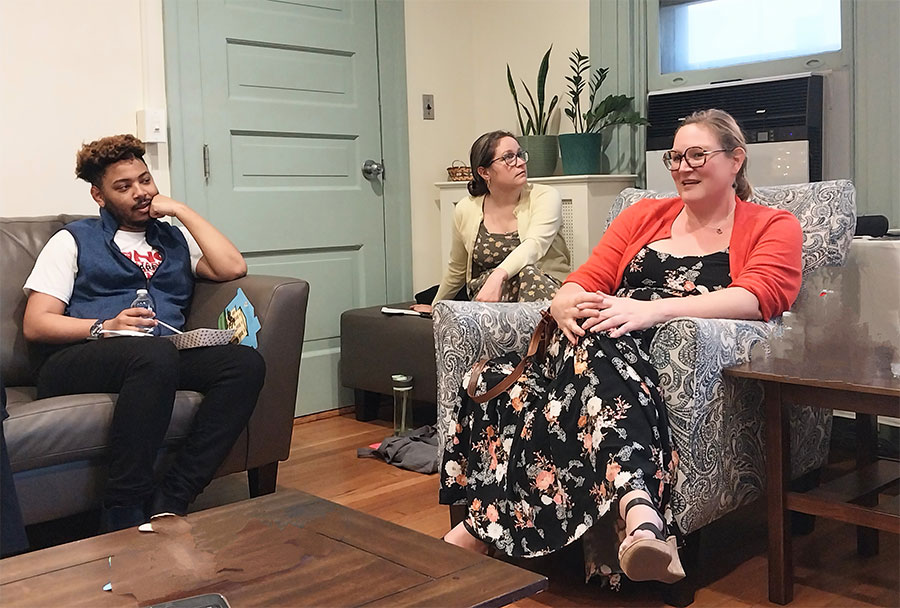
With this award, Hilaria will continue to help «affected women heal and transmit knowledge about medicine and midwifery and the rights that will keep our people safe for generations to come.»
On March 14, the former congresswoman for the Peruvian Nationalist Party (PNP) and a member of the Andean Parliament for five years, met with students of various nationalities at the Greenfield Intercultural Center on the university campus. She shared about her childhood, as an unwanted daughter by her parents, raised by her maternal grandparents, with whom she learned ancestral knowledge and how to fight to recover the land that the landowner took from them. Her grandfather was assassinated in that fight.
At the age of 14, she had her daughter and at 17, a son. With another partner, she had another daughter. «We have been taught to stay with our partner, even if he beats us or limits us, but of course not all men are bad,» says Hilaria, who has experienced humiliation, contempt, and racism firsthand for being an indigenous woman. However, her message is one of hope, understanding, and justice. «I will keep fighting until Pachamama (Mother Earth) gives me strength,» she says.
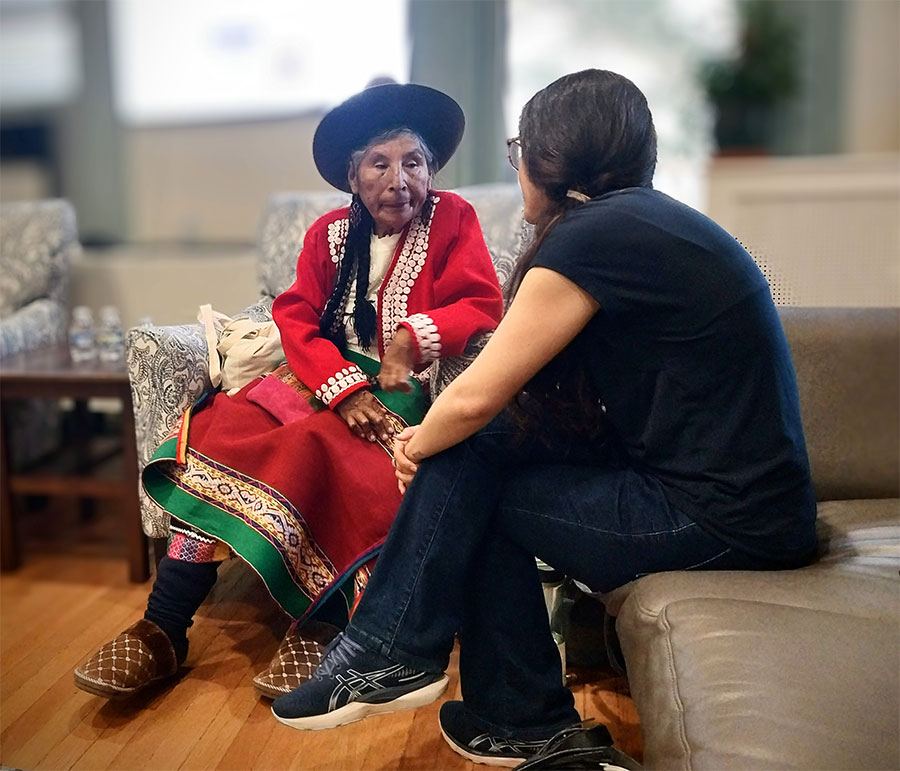
This 66-year-old activist continues to fight for the health and well-being of indigenous Peruvian communities. She addresses issues ranging from maternal health to traditional healing practices and ensures that the concerns of these communities are represented in national forums.
The Renfield Award will help her to offer mobile mental health, biomedical and ancestral services in 13 provinces and 114 districts of Cusco, to serve more than 10,000 women who were forcibly sterilized. Her goal is also to establish connections with the World Health Organization (WHO) and the Pan American Health Organization (PAHO).



















